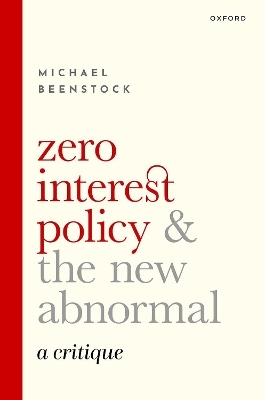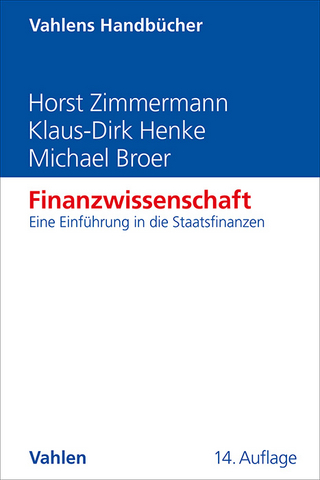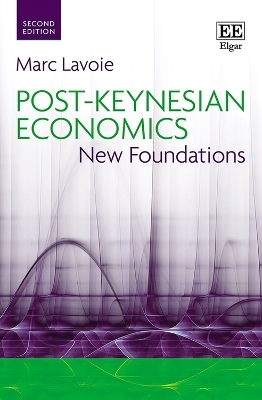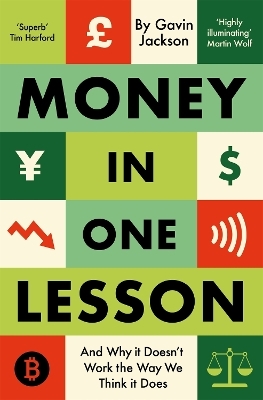
Zero Interest Policy and the New Abnormal
Oxford University Press (Verlag)
978-0-19-284966-3 (ISBN)
In the 'New Normal' central banks set their interest rate to zero and print money through massive quantitative easing, while finance ministries run huge fiscal deficits. Yet inflation remains minimal. Zero Interest Policy and the New Abnormal explains why. It also explains why the New Normal is really the New Abnormal, and why it can't last. This study traces the academic roots of the New Abnormal to a conceptual confusion about the 'natural rates of interest', and postmodernism in macroeconomics, exemplified by the DSGE (dynamic stochastic general equilibrium) movement.
It develops a theory of 'existential risk' which is concerned with the collapse of political economies such the Bretton Woods system and the New Abnormal. The book demonstrates that existential risk expresses itself in the growing gap between the natural rate of interest, measured by the rate of return on capital, and the real rate of interest, as well as in the development of cryptocurrencies. Beenstock develops a theory of 'kinetic inflation' based on Keynes' liquidity trap, which accounts for the absence of inflation in the New Abnormal, and predicts its outbreak when zero interest policy ends. He also explores the adverse social consequences of the New Abnormal for fertility, pensions, house prices, economic inequality, and intergenerational equity and establishes a causal link from the New Abnormal to Covid-19 mitigation policy, and from the latter to the intensification of the New Abnormal.
Finally, it assesses the prospects for ending the New Abnormal, and an orderly return to the Old Normal. The alternative is to crash-out of the New Abnormal chaotically.
Michael Beenstock studied at the London School of Economics from which he obtained his Phd degree in open economy macroeconomics in 1976. After working at H.M. Treasury and the World Bank he joined the faculty of the London Business School and then the Cass Business School (City University, London). In 1987 he emigrated to Israel where he was appointed Professor of Economics at the Hebrew University of Jerusalem. He currently teaches time series and network econometrics to graduate students. He has published eleven books including Neoclassical Theory of Macroeconomic Policy (Cambridge University Press, 1980), Heredity, Family and Inequality (MIT Press, 2012) and The Econometric Analysis of Nonstationary Spatial Panel Data (Springer, 2019 with D. Felsenstein). He has also published over 150 refereed journal articles including on such topics as psychology, climate science and epidemiology.
1: The New Abnormal
2: Where Macroeconomic Theory went wrong
3: Post Modern Macroeconomics
4: The Natural Rate of Interest
5: Descent into ZIP and the New Abnormal
6: Fertility Decline in the New Abnormal?
7: Socioeconomic Consequences of the New Abnormal
8: The Japanese Crystal Ball?
9: Covid-19 and the New Abnormal
10: The Return to Normality: Ending the New Abnormal
| Erscheinungsdatum | 17.08.2022 |
|---|---|
| Verlagsort | Oxford |
| Sprache | englisch |
| Maße | 165 x 240 mm |
| Gewicht | 734 g |
| Themenwelt | Wirtschaft ► Volkswirtschaftslehre ► Finanzwissenschaft |
| Wirtschaft ► Volkswirtschaftslehre ► Makroökonomie | |
| Wirtschaft ► Volkswirtschaftslehre ► Wirtschaftspolitik | |
| ISBN-10 | 0-19-284966-2 / 0192849662 |
| ISBN-13 | 978-0-19-284966-3 / 9780192849663 |
| Zustand | Neuware |
| Haben Sie eine Frage zum Produkt? |
aus dem Bereich


